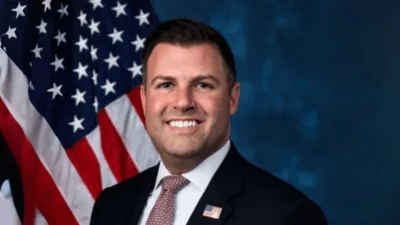Mr. Chairman, thank you for calling this hearing to examine the impact that the electronic employment eligibility verification system has on the Social Security Administration and on US workers.
The Social Security Administration has played a critical role in the verification of our workforce since 1997, when the Basic Pilot program began, which is now known as E-Verify.
Even though immigration enforcement is not part of SSA’s core mission, SSA has played an important part in E-Verify. This is because most workers checked through E-Verify are U.S. citizens, and SSA’s databases are the only comprehensive source of information on U.S. citizens.
Today, the majority of employees who are checked through E-Verify are cleared fairly quickly. However, some workers are not. And in fact, some of these non-match cases are the result of errors in SSA and immigration databases, or breakdowns in the process used to resolve erroneous rejections by E-Verify.
Our witnesses today will describe what happens to workers when they receive a "tentative non-confirmation" that the information submitted by their employer doesn’t match information contained on government databases.
This requires newly-hired individuals to take additional steps to verify their employment eligibility in order to keep their job. A recent Government Accountability Office report concluded that individuals often face significant difficulty in resolving non-confirmations.
This is not a trivial matter, because the inability to resolve an erroneous non-confirmation can lead to the loss of a job.
In addition, I am deeply troubled to learn that many employers do not comply with E-Verify program rules designed to prevent discrimination or abuse of the system. For example, some employers do not give their workers a chance to correct their records or inform them of their rights, and instead simply fire them.
In this weakened economy, one job lost due to mechanical or technical error, or employer non-compliance with E-Verify requirements, is one job too many.
Mr. Chairman, at this time I'd like to submit into the record the stories of Americans who have suffered greatly from problems with E-Verify. These illustrate the kinds of challenges U.S. citizens and legally authorized workers face in keeping their jobs.
Many in this Congress would like to expand the E-Verify system. But we should not do so unless we first address the kinds of problems with the existing system that are identified in today’s hearing.
In addition, to meet the needs of this program, should it grow, more resources must be dedicated not only to process queries, but also to increase staff for the inevitable influx of in-person visits to contest erroneous non-confirmations. One estimate finds that as many as 1 million new hires would need to visit an SSA office should this program become mandatory.
I am struggling to reconcile the costs of an expanded E-Verify program with competing priorities in a challenging fiscal environment - particularly when we know that, right now, E-Verify fails to detect unauthorized work, is subject to misuse and identity fraud, and causes U.S. citizens to lose their jobs.
For example, while the volume of queries to E-Verify continues to increase, funding for E-Verify has been reduced in the fiscal year 2011 Continuing Resolution. For E-Verify, the resolution appropriates $103.4 million, which is a reduction of $33.6 million from the $137 million provided in fiscal year 2010. In addition, the Continuing Resolution provides $643 million less for SSA in fiscal year 2011 than what the agency actually received in the prior year - this represents close to a 10 percent cut in what SSA needs to maintain service levels and continue to drive down the disability backlog.
While some have proposed making E-Verify a permanent, mandatory program, the Congressional Budget Office has estimated that this would cost the taxpayers nearly $18 billion over ten years.
As we continue to work to improve this program, the ultimate solution is to reform our broken immigration system.
In places like Arizona where E-Verify is mandatory, some employers have resorted to paying their employees under the table or have simply chosen not to comply with the program. The state has also seen a loss of income-tax revenue - confirming predictions that mandatory E-Verify in the absence of immigration reform simply drives employers into the underground economy.
Chairman Johnson, I look forward to working with you to improve our electronic employment verification system. Thank you again for calling this hearing.








